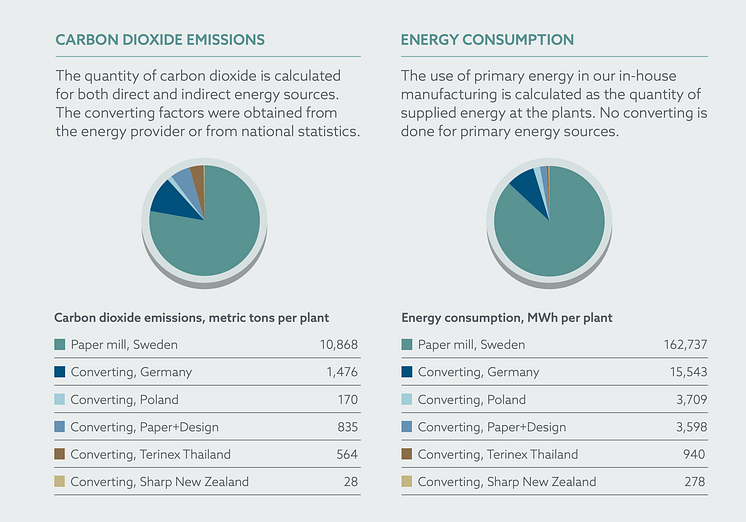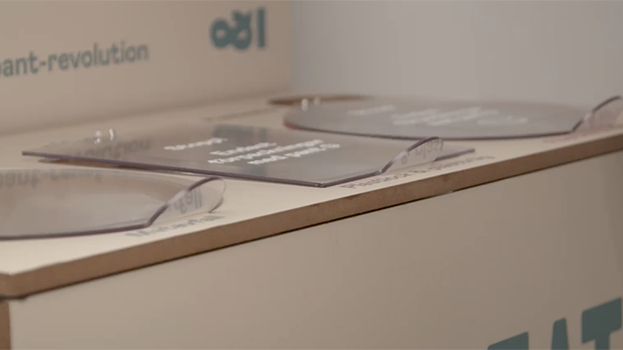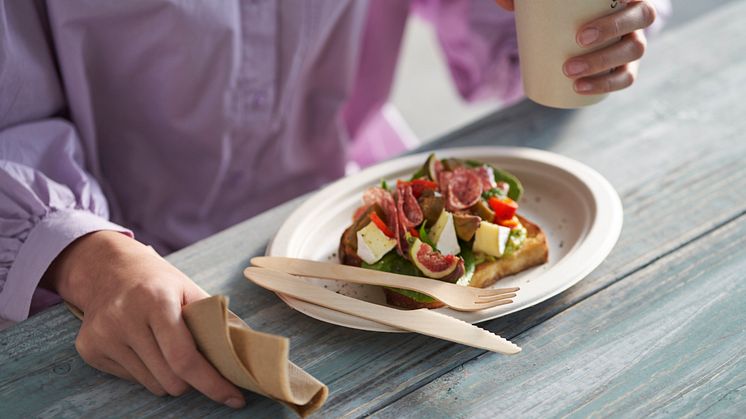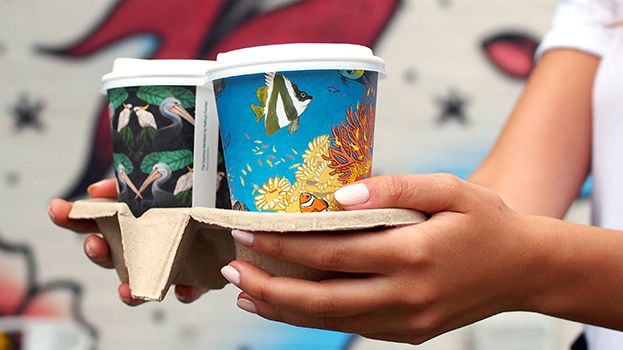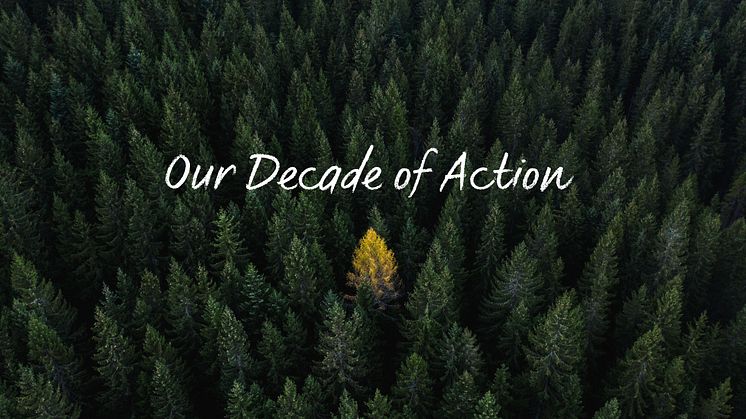
News -
Towards climate-neutral operations by 2030
In 2020, it became even clearer that climate change represents the greatest challenge of our time. More dramatic forest fires, landslides, record-hot heatwaves, droughts and water shortages demonstrated the increasingly urgent need to transition to a fossil-free economy.
Climate engagement is a key part of Duni Group’s sustainability program, “Our Blue Mission”. Therefore, we have set an ambitious goal to be climate-neutral by 2030. The most important part of this is reducing our carbon footprint. Where that is not possible, we will engage in carbon offsetting.
Our carbon footprint is largely attributable to the production of our products. We produce the Duni segment’s napkins and table covers in-house, and this is the part we can control. Our goal to be carbon-neutral in our in-house production via offsetting (GHG Protocol Scope 1 and 2) in 2020 was impacted negatively by COVID-19 and postponed until 2021. We’re continuing to work on phasing out virgin fossil plastics from all Duni products and packaging materials.
BioPak’s food solutions and take-away products are procured externally. This product range is eco-profiled and does not contain any virgin fossil plastics. Starting in 2021, we will carbon offset the BioPak range in Europe. BioPak in Australia already does this.
Environmental improvements in production
The paper mill in Skåpafors produces raw materials for the Duni segment’s products. The paper mill has reduced its emissions for many years.
However, tissue production is energy-intensive and divided into three areas:
- Electric energy runs the machines and produces steam (currently fossil-free)
- A biofuel boiler to produce heat and steam. Replaced oil and electricity in 2010.
- Gas, liquefied petroleum gas (LPG), primarily to dry tissues. This gas accounts for 100 percent of Rexcell’s fossil carbon dioxide emissions (GHG Protocol Scope 1 and 2).
The Skåpafors paper mill accounts for 70 percent of total fossil carbon dioxide emissions from the Group’s production. With fossil-free drying, our in-house production would be 90 percent fossil-free, compared to today’s 67 percent.
Majority fossil-free
Our goal is to have replaced fossil gas with gas produced from biomass by the year 2025. We participate in research studies and collaborate with other stakeholders to find solutions.
The plan is for all plants in Europe to reduce their carbon footprint. Starting in 2021, production will be fully powered by electricity from 100 percent fossil free sources. Outside Europe, the possibilities for fossil free electricity vary and we are following developments.
In converting, natural gas is also used for heating and production in Germany and district heating in Poland. Our aim is to replace natural gas with biogas by 2025.
Some parts will be carbon offset
For our in-house production, we have good control over the energy used and fossil carbon dioxide emissions. We already report under the GHG Protocol’s Scope 1 and 2 except offices and warehouse buildings, which have a small impact. Starting in 2021, we will carbon offset the remaining emissions in one of the UN’s certified CDM projects (see fact box).
The GHG Protocol Scope 3 covers a company’s climate impact including the entire value chain. Besides in-house production, raw materials and transport are the most significant factors, and we continuously work to reduce their environmental impact. For the time being, we have chosen not to set a goal for reporting and offsetting Scope 3. Instead, we will focus on practical measures.
